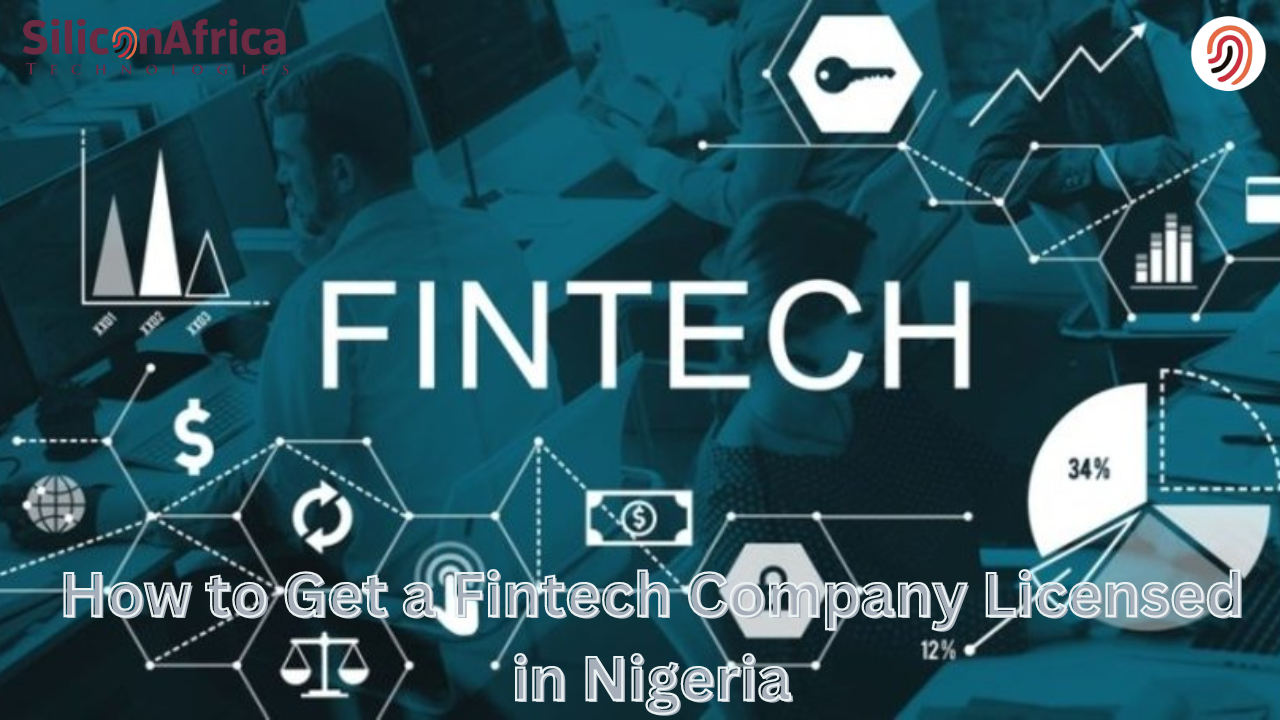Physical Address
60 Ekwema Cres, Layout 460281, Imo
Physical Address
60 Ekwema Cres, Layout 460281, Imo

Fintechs in Nigeria are changing how we conduct financial transactions. They offer greater ease and accessibility than traditional banks.
It’s no wonder the fintech industry is gaining prominence in the nation. Reports from KPMG and PwC projected up to 25% growth in Nigeria’s fintech sector by the end of 2024.
Perhaps you just started a Fintech company and are wondering how to get a Fintech license in Nigeria. Welcome to the space where you’ll find answers to your questions.
Regulatory compliance is essential for your startup, and we’re glad you’re aware of that. So today, we’ll discuss some of Nigeria’s most important fintech licenses and how to get them.
A fintech company is an institution that leverages technology to provide innovative financial solutions to customers.
Fintech companies provide services that include loans, virtual bank accounts, transfers, investment solutions, wealth management, financial advisory, saving opportunities, crowdfunding platforms, and tokens.
There are currently several licensed fintechs in Nigeria, according to Federal Competition and Consumer Protection Commission reports.
By 2025, more Nigerians are expected to open bank accounts on fintech platforms. This is due to the easier accessibility and fewer technical requirements associated with fintech banking.
Also read: Top 10 Nigeria FinTech CEOs
Fintech companies are often characterised by some key features, some of which are listed below:
Different licenses are required for fintechs in Nigeria. But you don’t need to acquire them all. The license you need depends on the type of Fintech you’re operating.
There are currently about seven types of fintechs in Nigeria. These include:
Also read: Nigerian Fintech, Risevest Acquires Hisa, Kenyan Startup
Each of these categories may be further subdivided. PSP, for instance, has five sub-categories:
Below is a comprehensive list of fintech licenses in Nigeria:
| No | License | Issuing Body |
| 1 | Payment Solution Service Provider (PSSP license) | Central Bank of Nigeria (CBN) |
| 2 | Payment Service Provider license | CBN |
| 3 | Super-Agent license | CBN |
| 4 | Robo-advisory license | Securities and Exchange Commission |
| 5 | Payment Terminal Service Provider License | Nigerian Communications Commission |
| 6 | Regulatory Sandbox | CBN |
| 7 | Switching and Processing License | CBN |
| 8 | Mobile Money Operator License | CBN |
Now that you know all the licenses that apply to Fintechs in Nigeria, let’s discuss how to get a Fintech license in Nigeria.
This section will cover the step-by-step guide for securing a PSSP license, a lending license, and a Mobile Money Operator license, the most common fintechs in Nigeria.
Also read: FlapKap, Egyptian Fintech, Raises $34 Million Pre-series A to Scale SME financing across MENA
In this section, we’ll focus on the application process for a PSSP license. The application fee is ₦100,000, while the licensing fee is ₦1 Million. Follow the steps below to apply for a PSSP license in Nigeria:
The first step is to gather all your necessary documents. The documentation for a PSSP license in Nigeria is extensive. These include:
Also read: Key Fintech Trends in Nigeria from 2024 and the Outlook for 2025
Next, take actionable steps to enter your application. Here’s what you need to do:
Lending Fintechs offer quick loans to customers without the complexities of traditional banking.
Some top digital money lenders in Nigeria as of 2024 are Renmoney, Moniepoint, Okash, and Opay.
If you’re planning to start a lending fintech company in Nigeria, you need a microfinance bank license from CBN. Here’s how to go about it:
Also read: African Fintech Growth Opportunities, Especially in South Africa
The CBN Guidelines 2021 states that any Mobile Money Operator (MMO) in Nigeria must have a Payment Service Holding Company (PSHC) in place.
The PSHC is to act as the holding company, with two subsidiaries: the MMO and a switching and processing company.
The minimum share capital of the PSHC is ₦2 billion. After structuring a PSHC, follow the steps below to obtain an MMO license:
Getting licenses for fintechs in Nigeria can be a long process. However, it is necessary because you will enjoy the benefits in the long run.
Below are some advantages of getting a license for your Fintech in Nigeria:
A fintech company is an institution that leverages technology to provide innovative financial solutions to customers.
Registering with CAC is the first step to starting a Fintech Company in Nigeria. This is mandatory for all fintech in Nigeria. The steps you’ll take from there depend on the type of fintech you’re operating.
Fintechs in Nigeria are regulated by the Central Bank of Nigeria (CBN), National Deposit Insurance Corporation (NDIC), Securities and Exchange Commission (SEC), Nigeria Interbank Settlement System (NIBSS)
Fintechs in Nigeria are an integral part of the financial space. They make it easier for customers to loan money, make transfers and perform other transactions.
So, starting a fintech company would be highly welcome in Nigeria. Now that you know how to get a fintech license in Nigeria, you can provide financial solutions while being legally compliant.
Follow us on X, formerly Twitter,@SiliconAfriTech for more updates.